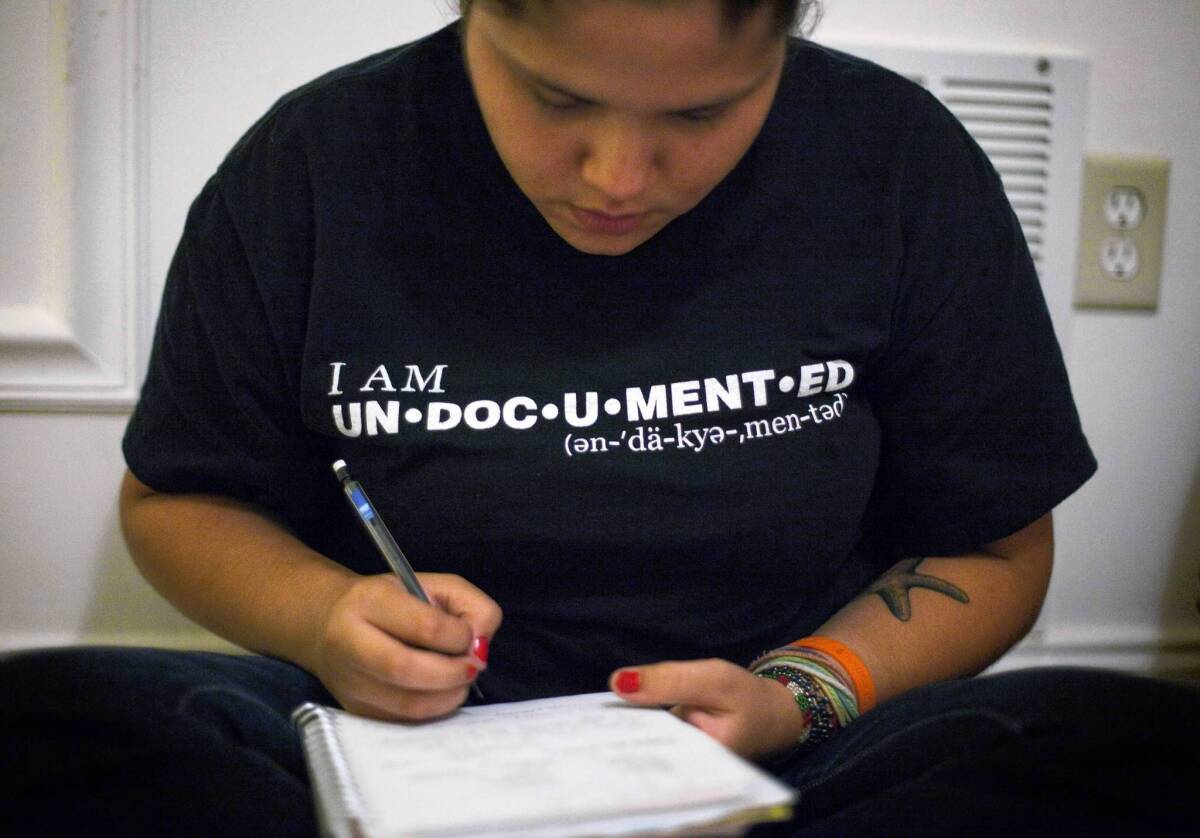Letters: Which path on immigration?

Re âA third way on immigration,â Opinion, Dec. 16
Peter Skerryâs Op-Ed article advocating âlegalization without citizenshipâ skips over two essential points too rapidly: the reason why unauthorized immigrants come to this country and their true benefit to all Americans. They come to this country primarily for one purpose: to take the low-skilled and low-paying jobs that Americans will not take. Recall that during the Great Recession, some 23 million people were out of work. Yet none of those unemployed went to states with restrictive anti-immigrant hiring laws to harvest sweet potatoes or strawberries.
Almost every American regularly uses the labor and benefits from the unauthorized immigrants among us. Their low wages and benefits keep our food costs low. We Americans spend 6.9% of our income to purchase food, the lowest percentage in the world.
I favor the âearned path toward legal statusâ approach, which would have unauthorized immigrants begin a process that would move them slowly forward, but only advancing them upon completion of a stage. Once they reach the point of applying for citizenship, they would then get in line behind all others around the world. This is not amnesty.
Letâs not blame immigrants because we have posted two signs at the border: âHelp Wantedâ and âNo Trespassing.â
Cardinal Roger M. Mahony
North Hollywood
The writer was archbishop of Los Angeles from 1985 to 2011.
Skerryâs proposal to adopt legalization without citizenship for the estimated 11 million illegal immigrants in the U.S. merits serious consideration. It largely takes politics out of the equation and is also practical and fair.
We simply could never deport 11 million people, if that were to become our goal, nor should we ever allow illegal immigrants citizenship, including the right to vote. Legalization without citizenship is a thoughtful compromise for a seemingly unsolvable problem tangled up in partisan politics.
James Ziegler
San Diego
Skerryâs plan would create a permanent underclass. He preemptively rejects that criticism by suggesting many of those legalized under the Reagan amnesty got their green cards but never became citizens. Thatâs like saying U.S.-born residents who have never voted would not be harmed if their voting rights were taken away.
And while Skerry notes that many Americans associate immigrants with income inequality and diminished opportunities, he acknowledges that there is little evidence to that effect. Itâs hard to see how a caste system of citizens and immigrants who are permanently shut out from citizenship can help us secure economic prosperity for all.
Immigration reform is likely to include enhanced border enforcement, improved systems for future flows and some path to legalization. Skerry is contributing to a civil discussion of the alternatives â but we hope no one takes him up on his idea.
Stewart Kwoh
Manuel Pastor
Los Angeles
Kwoh is the president and executive director of the Asian Pacific American Legal Center; Pastor is director of USCâs Center for the Study of Immigrant Integration.
ALSO:
Letters: The ârealâ story on torture
Mailbag: Mental illness and gun violence
Letters: Hagel, Israel and the Defense job
More to Read
A cure for the common opinion
Get thought-provoking perspectives with our weekly newsletter.
You may occasionally receive promotional content from the Los Angeles Times.










